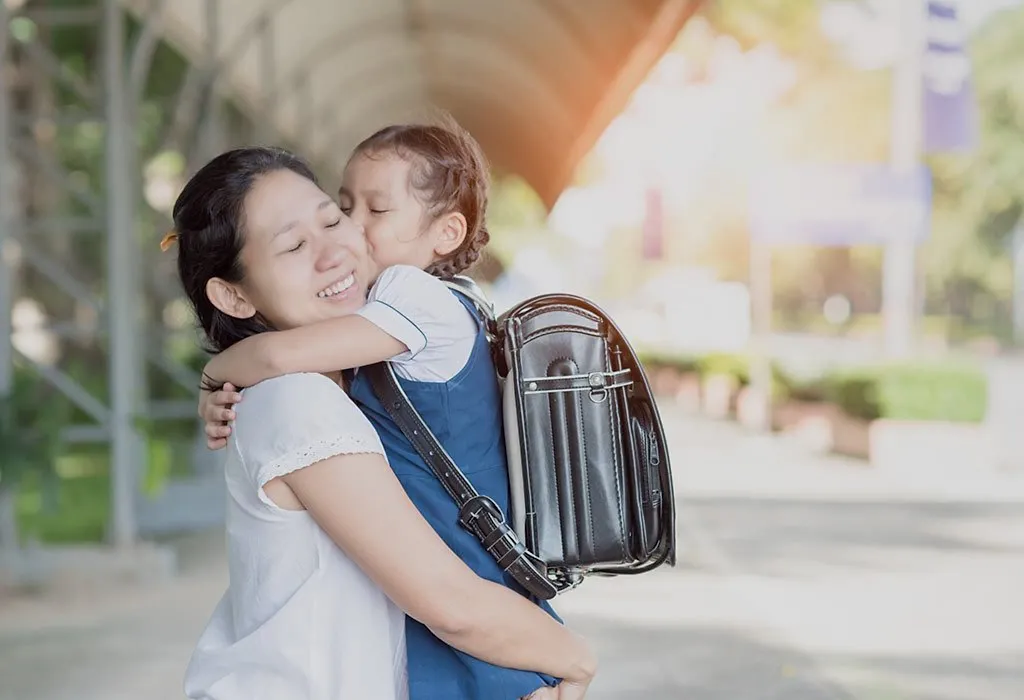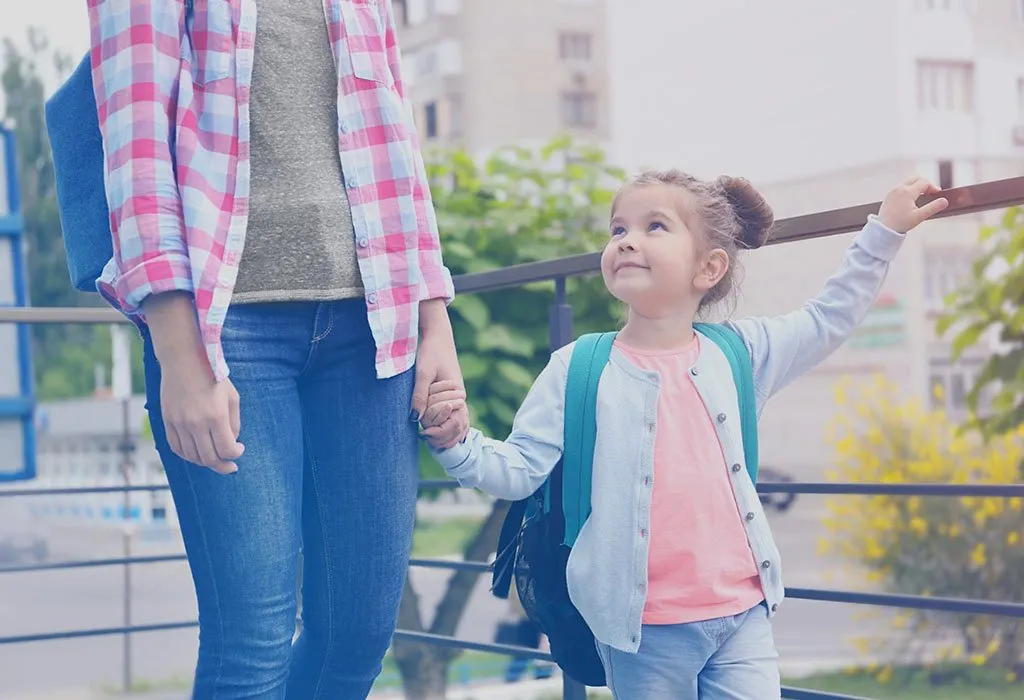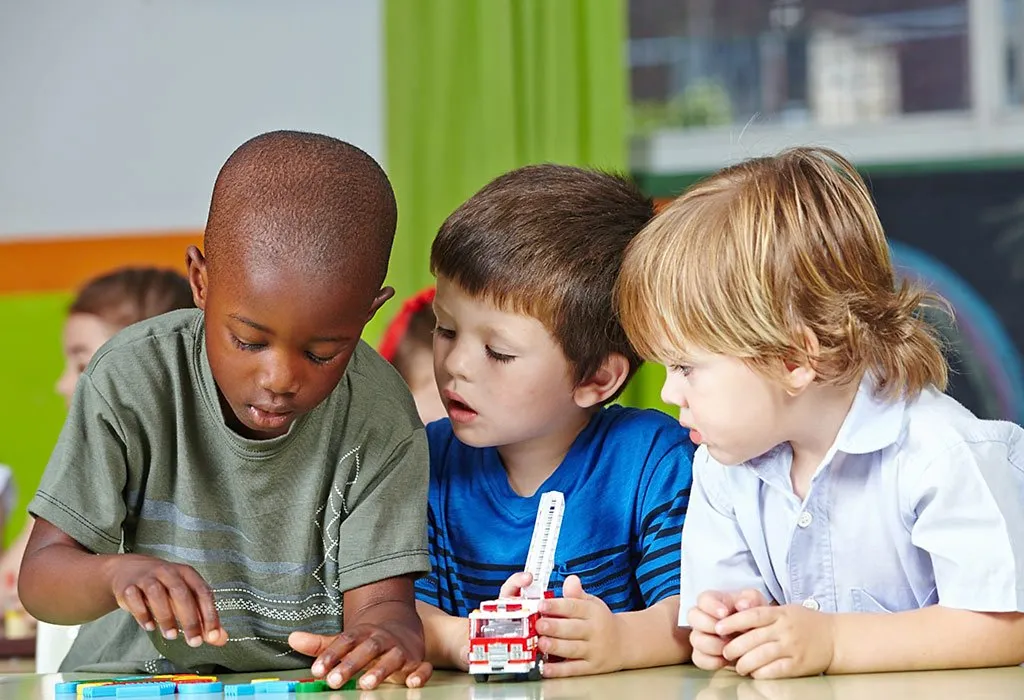Different Ways to Manage Separation Anxiety in Preschoolers
- Tips to Ease Preschool Separation Anxiety in Children
- Points to Remember
Even though your kid spends most of his time with you, there will come a phase in his life when he has to start going to a preschool. Where for some kids this transition may be easy, others may become very anxious about the sheer thought of going away from their parents. Well, anxiety is a very common phenomenon, and if your kid experiences separation anxiety, there is no need to panic. In the following article, we shall be discussing some effective ways of dealing with separation anxiety issues in preschoolers.
With a heavy heart, you may be all set to drop off your kid to his school, but he will start whaling, screaming, throwing tantrums or express other such emotions. What should you do under such circumstances? Well, here we have tips for you to deal with separation anxiety of your 4-year-old preschooler:
You should not expect your child to adjust to his new routine within the first few days. Give him some time to adjust to the routine and be very compassionate and caring during this time. It is all about getting used to the new things and soon your child will get the hang of it.
2. Trust Your Child’s Teacher
Most parents worry that the teacher may not be able to handle their child. However, that is not always the case, as most preschools hire trained staff to take care of the needs of young children. Therefore, once you are assured, you can help your kid understand the same or else you will transfer your fears to your child, making it difficult for him to adjust to the new environment.
3. Set a Goodbye Routine
Most kids like to follow a set pattern as it helps them understand what they should expect next. Setting a goodbye routine can be one of these routines. You can kiss your child, give him a hug or a high-five or do anything to say goodbye. This will help him understand that he is now expected to go to school.

4. Try Something New
Believe it or not, sometimes kids behave better when they are not around their parents. To try this out, you can ask any family member, friend or neighbor to drop off your kid to school for the first few days or until he feels settled in school.
5. Deal with the Problem
Every kid is different and may come up with different reasons and problems for not going to school. Well, should you lure your kid by bribing him? That may solve the problem for a day, but in a few days, it will bring you back to square one. Therefore, it is better to help your child face his problems head-on rather than escaping them.
6. Try Not to Be Late for Pick Up
Kids look forward to going back home to their comfort zone. In the first few days, all they might actually think off during the school hours is to go back home. Therefore, it is essential that you always be on time to pick up your child as a delay will only make him more anxious.

7. Give Him a Memento
The idea may seem a bit unusual, but it actually works. You can give your child a small toy, place a family picture in his backpack or anything that will remind him of your home. This will help soothe your kid when he is away from you. The idea is to help him feel closer to home and thus anything that will help him remind that may actually do the trick.
8. Do Not Show Your Fears to Your Kid
It is not just your child who is feeling all jittery and anxious to go to school, but you as parents may be experiencing a tough time to stay away from your kid too. However, do not let your kid feel or see your fears or anxieties as it may aggravate his anxiety issues.
Imagine a scenario where you may have to be with strangers all through the day. You may feel uncomfortable and alone, well, that is what your kid may be experiencing too. You may help your kiddo become friends with his classmates. You may take him to a park where his class-mates may come to play after school, or you may arrange for play dates after school. Being in company with known faces may make it easier to feel settled in school.

10. Anxiety May Bounce Back
Just when you think that you have it all under control and your kid is all settled in school, you may notice your kid’s anxiety issues creeping back into his life. Do not worry or panic as this is very normal and it usually happens when your child falls sick, after a few holidays or other such situations. Maintain your calm as very soon your child will dive back into his usual routine.
11. Prepare for School
Talking about school and how his day went maybe some of the things that you should talk about after your kid comes back from school. Helping him do his homework in the evening and setting up his bag and uniform for the next day can be some of the activities that will help your kid prepare for school. When something like this acting as a constant reminder, it is easier to understand and grasp, and the same holds true in this case.
12. Be Realistic and Honest
It is imperative that you talk to your child about his fears and worries. This way you will learn about the things that may be bothering your child. Also, tell your child that it is normal to feel what he is going through and most kids feel the same. Tell him that all these feelings will soon go away and he will start enjoying his school. You can also share your experiences with your kid.
13. Involve the Teacher
Apart from you, your kid’s teacher is the other person who spends the maximum amount of time with your kid. It will be a good idea to keep meeting the teacher on a regular basis to know how well your kid is coping in his new surroundings. Interaction with your kid’s teacher can help the teacher understand your child better, which in turn may help your kid feel at ease in school.
Starting off school is a significant step in your kid’s life and helping him with his anxiety issues can help him perform better in school. There is no doubt that it is a challenging time for both, the parents as well as the child, however, following some of the tips as mentioned above can help your child handle separation anxiety in a better manner.
Points to Remember
Here are some points that you should remember and which can assist you in dealing with separation anxiety issues in your child:
- Your kid may behave all erratic in your presence, and thus it may not always be a good idea to drop him to school on your own. To avoid the drama, you can ask your friend or any family member to drop off your kid at school.
- You should make regular appointments with your child’s teacher to monitor his progress and also see how well he is coping in his class.
- Keep the goodbyes short and crisp and do not drag them. Getting all emotional at such times may make it difficult for your kid to leave. Just kiss or wave goodbye to your child. At the same time, it will not be a good idea to leave without saying bye, as it may cause unnecessary panic in your child.
- You will be surprised to know, but kids are pretty good at understanding their parent’s emotions. Thus refrain from expressing your fear or doubts in front of your child. Such feelings may create an aversion towards school, and it may further increase your kid’s anxiety.
- It is quite likely that your kid may have occasional bouts of anxiety issues. There is no need to feel worried as this is a very common phenomenon. This may usually occur if your kid stays at home for an extended period, which can happen because of some illness or due to holidays.
Kids are very adaptive, and they learn very fast too. Once you help them understand that it is fine to be away for a while and you are going to be together soon, it may help your kid deal better with his separation anxiety issues. However, if you are not able to deal with your kid’s anxiety issues, you can seek professional attention.
SHIJINA RIJESH
